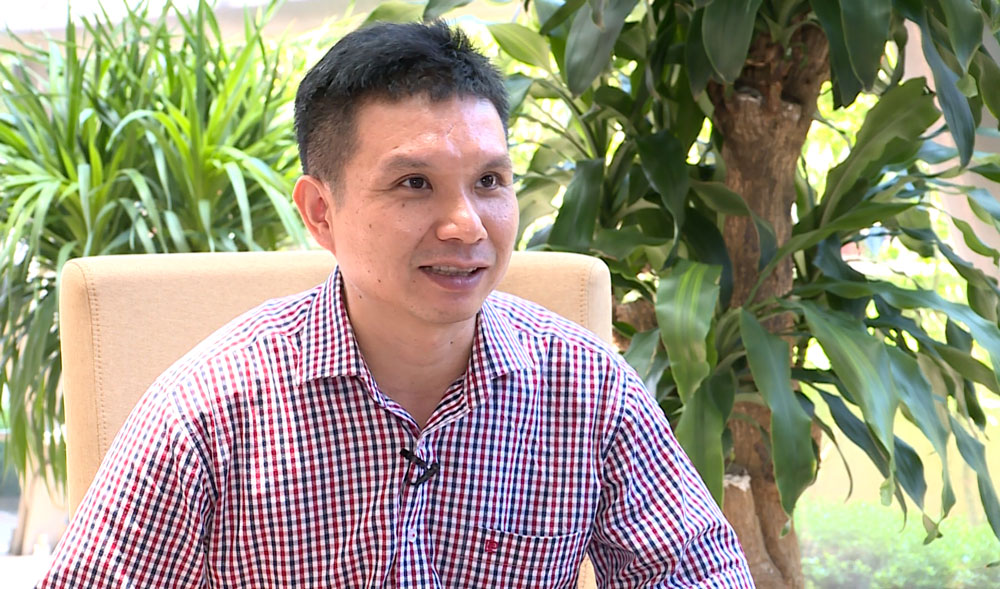
Expert Ha Dang Son
Mr. Ha Dang Son: It has been seen that, since the Government issued FIT prices to encourage the development of renewable energy, there has been a boom in wind and solar power investment projects in Vietnam. However, in reality, the investment is not really sustainable. Many investors follow the trend of "surfing", so they have not fully understood the difficulties and risks in the construction process. Also, there are many mechanisms and policies that have not kept pace with reality. Therefore, at the end of the FIT price term, there are still wind and solar power projects in the transitional period that are waiting to be determined in the selling price of electricity.
Reporter: Dear Sir, while waiting for state management agencies to issue a new price mechanism, EVN has proposed transitional renewable energy projects to join the electricity market. How do you assess this proposal?
Mr. Ha Dang Son: I think that EVN's proposal for transitional renewable energy plants to participating in the electricity market is quite appropriate at this time.
It must be affirmed that, at present, there are not many options for investors.
Recently, the Ministry of Industry and Trade (MOIT) has issued a circular stipulating the method of building the electricity generation price frame of solar power plants and transitional wind power plants; but to be able to calculate it accurately, to collect all the data and to calculate the appropriate figures also takes time; and it is not known whether the reference result of the highest price will meet investors' expectations or not.
In addition, the Government has also given instructions to stakeholders; including directing MOIT to develop a bidding mechanism. However, up to this point, there has not been a clear and highly feasible proposal.
At the same time, EVN said that it is ready to coordinate with investors to consult MOIT so that renewable energy investors can soon participate in the electricity market. According to the report of the Power System Dispatch Center Currently, the ceiling price of the electricity market is about 1,600 VND/kWh. If compared with the FIT price, this is also an acceptable price for investors.
Reporter: Dear Sir, in the long run, what should be done to avoid wasting resources for businesses as well as to create a legal corridor for EVN to mobilize projects in accordance with regulations?
Mr. Ha Dang Son: First of all, it must be confirmed that this is not the decision-making authority of EVN.
In order to create favorable conditions for businesses and investors with FIT-delayed renewable energy projects to avoid waste, as well as create a legal corridor for EVN to mobilize and record output that has been put into operation, the active participation of relevant state management agencies is required.
Specifically, the Ministry of Industry and Trade, the Ministry of Finance, the Commission for the Management of State Capital at Enterprises, need to give detailed instructions; and at the same time advise the Government to promulgate mechanisms and policies on prices for transitional renewable energy projects. Only in this way can the current problems be solved soon.
Reporter: In your opinion, in order to fulfill the Prime Minister's commitment at COP26 to gain net-zero emissions by 2050, will renewable energy be strongly developed in the coming period?
Mr. Ha Dang Son: In the coming period, Vietnam shall definitely make strong moves to promote renewable energy, in order to fulfill its commitments at COP26. However, in order to perform this, many conditions are required.
Firstly, in terms of power planning, there must be careful calculations and analysis on the capacity of mobilizing auxiliary sources so as to be able to handle the challenges related to unstable power sources such as wind power and solar power. Usually, to be able to mobilize these ancillary resources, it is necessary to make adjustments regarding the mechanisms for paying electricity prices at different time frames.
Secondly, the Government needs to be more proactive in giving directions, strategies and policies to harmonize the stakeholders: Investors must feel confident when investing capital; EVN also needs to have an investment plan on power transmission infrastructure as well as specific instructions to mobilize projects in accordance with the law.
The most important thing is that the Government needs to have long-term commitments, instead of just issuing short-term policies that lead to disruptions in implementation as done in the past. Because at present, when the prices of FIT 1 and FIT 2 expire, there is still no mechanism issued such as a bidding mechanism or direct electricity purchase and sale. This is a huge challenge in the coming time to attract stronger private participation to ensure the story of energy security.
Reporter: Thank you very much!